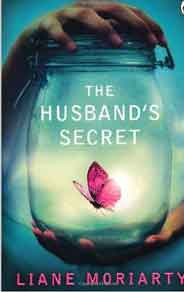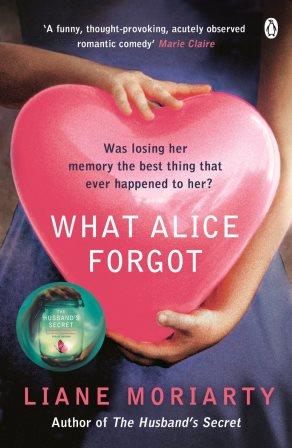
Secrets. Everyone has at least one. But would yours destroy your marriage?
In an instance of pure serendipity, this month’s book group choice was one I had recently placed on my wish list, so I was glad to get the opportunity to try-before-you-buy.
What’s it about?
Cecilia finds a letter that isn’t meant to be opened. Curious, she reads it, and her heart breaks. Her husband, John-Paul, confesses to a terrible mistake with life-altering consequences. Can Cecilia keep the secret to herself? And if not, what will happen to her family?
What’s it like?
Not quite as advertised. While the blurb focuses exclusively on Cecilia, and the first chapter opens with her sitting gazing at The Letter, the second chapter abruptly introduces us to Tess and her family. Poor Tess is informed by her husband and cousin that they have fallen in love – but not had sex, mind, so really they’ve been very well-behaved – and want her blessing. By the end of the chapter she’s planned her escape from Melbourne to Sydney with her son, Liam. Chapter three introduces Rachel, who’s also receiving Bad News: her son and daughter-in-law are moving to New York…with Rachel’s only grandchild. Since her husband died and her daughter was murdered, this will leave Rachel all alone.
Three chapters introducing three sets of characters…this isn’t my preferred way to start a book and if the fourth chapter had introduced another set I might have given up. Fortunately, after this the third-person narration moves back and forth between these three women and so the plot becomes easy to follow – I had simply found the number of characters a little jarring after the singular focus of the blurb and title.
Can Cecilia keep the secret to herself? And if not, what will happen to her family?
By the end of these introductory chapters, it is clear that Moriarty intends these characters to meet, if they haven’t already, as she emphasises the connection developing between them. Ironically, of the three women, Cecilia is the only one whose bomb has not yet exploded, perhaps because she possesses the trigger. In fact, it doesn’t explode until nearly two hundred pages into a four hundred page story.
Sometimes, it is easy to know oneself. If I found a letter from my husband addressed to me, with the caveat ‘to be opened only in the event of my death’, I’d open it. Obviously, there’d be a moment’s hesitation, while I wrestled with feelings of wrongness, but it would be a short moment. While that admission doesn’t paint me in a flattering light, it explains my frustration with Cecilia, who dithers and procrastinates until forced into action.
The secret itself is guessable if you’re the type who likes to predict plot developments, especially if you consider the characters Moriarty has chosen to focus on. However, I prefer to read ‘blind’ when not reading critically for work, and would have had no idea what was coming if I hadn’t become so frustrated by Cecilia’s inaction that I skipped ahead to read the letter.
The characters themselves are convincing, but Tess’ story suffers from the compact time-frame of the narrative. The whole story takes place over the course of just one week, so Tess has her heart broken on Monday, but somehow seems rather less sad by Wednesday after meeting up with an ex-boyfriend… A story like hers seemed to need more time and space to grow and develop naturally.
How would you treat your the man you believed murdered your daughter?
In contrast, Cecilia and Rachel’s stories work well within the time constraints: there is only so long Cecilia can remain in a state of sheer shock, and Rachel’s convictions gather an appalling momentum that hastens the denouement. I found their stories interesting, though I was well aware of the Jodi Picoult-esque focus on ‘issues’. (How would you treat the man you believed murdered your daughter?) However, unlike some of Picoult’s books, the focus here is on telling a story rather than on examining an Issue.
There are oddities that could irritate readers: the prologue is strange in tone, though utterly fitting for the storyline; sometimes the omniscient narrator steps out in full view and tells the reader odd details (like exactly how many colds Janie would have endured, had she lived); and then there’s the ending.
The ending is something you’ll love or hate. I loathed it. In a final omniscient epilogue, Moriarty’s smug narrator looks forward and backward in time and in so doing, completely changes your perception of a key event. (Unless of course, you were paying attention during the book, in which case you could probably predict this too.) When I read this I felt that it undermined everything that had gone before, but in retrospect it develops the central themes in interesting directions.
Final thoughts
Overall I enjoyed reading this and recommend it to fans of chick-lit and relationship dramas. It’s worth noting that the title suggests a mystery / crime element but that’s not really the focus of the book. Instead, it explores the harm secrets can do, to individuals and families, especially over time.
At first glance, Moriarty’s earlier book ‘What Alice Forgot‘ looks as if it may explore similar themes, and I’m tempted to try that soon.


